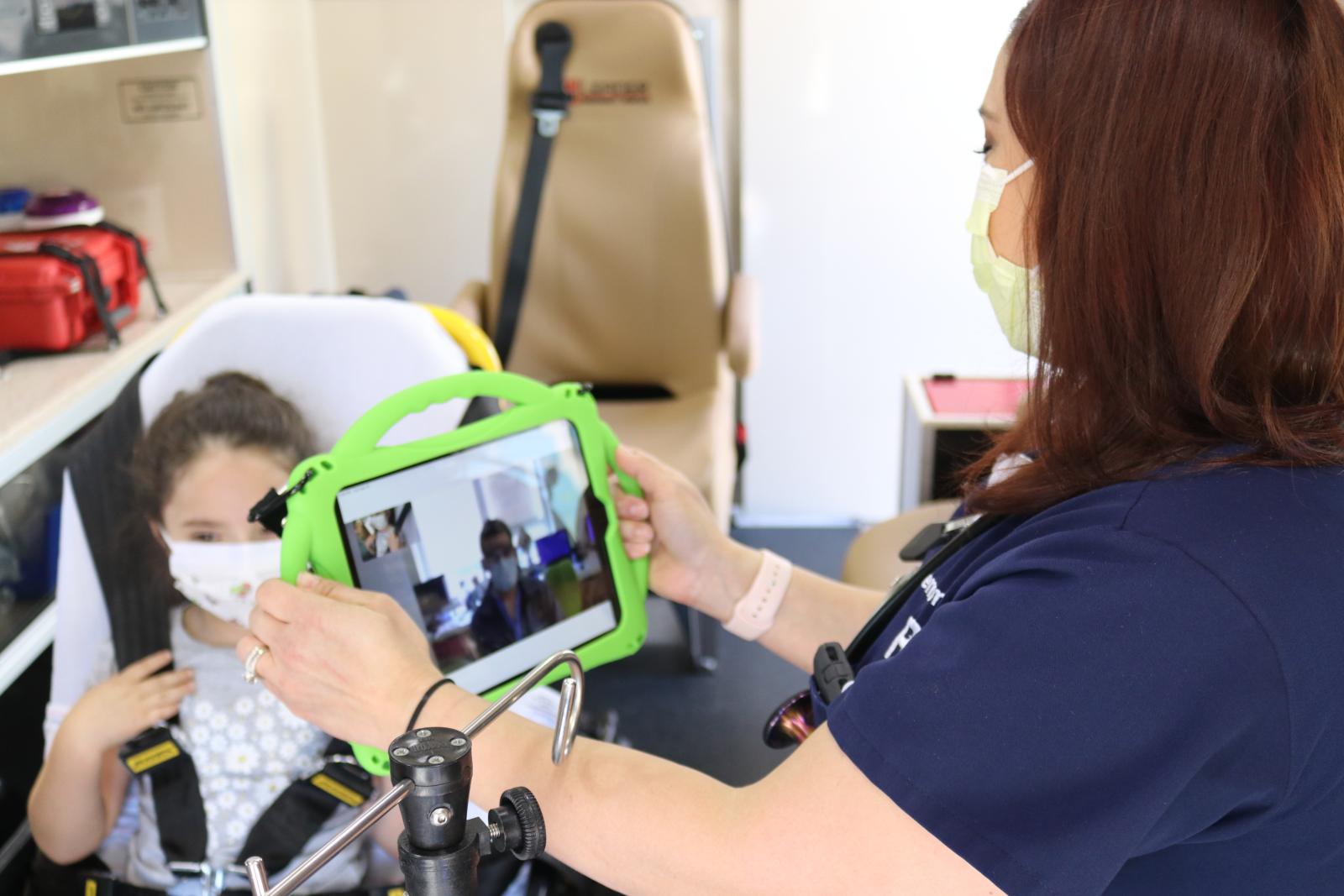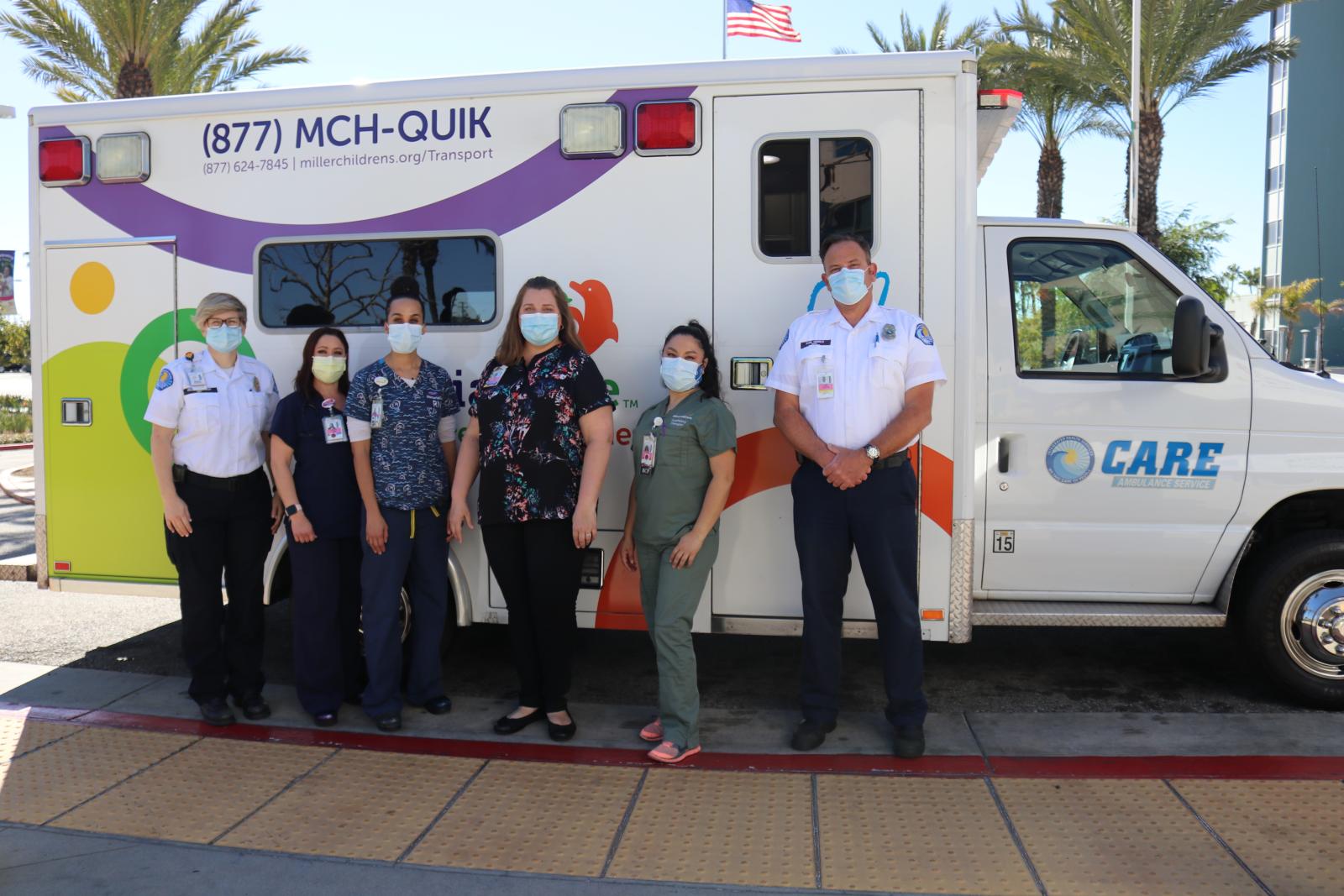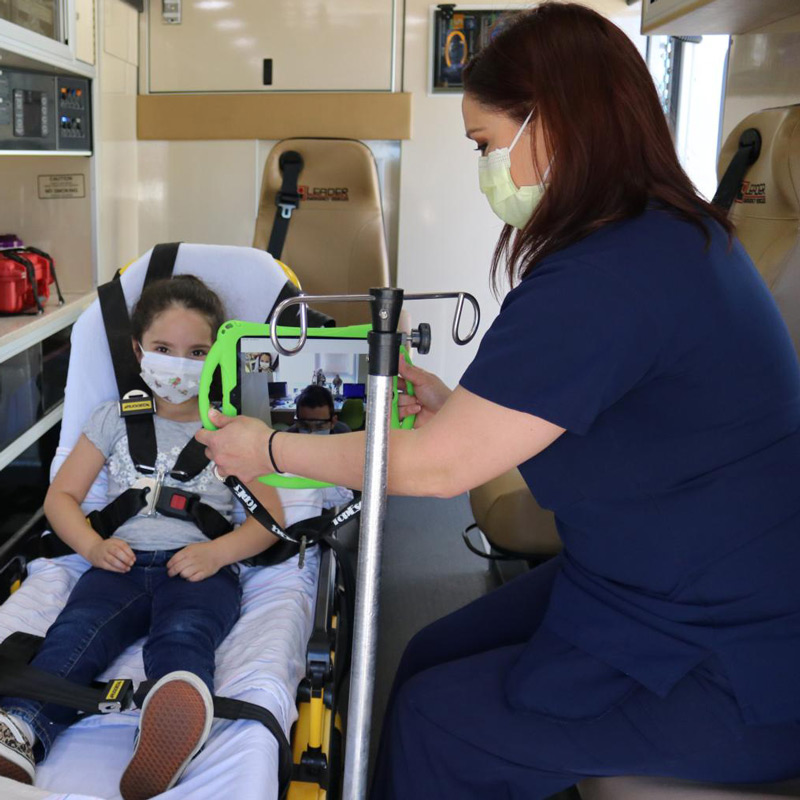The MemorialCare Miller Children’s & Women’s Hospital Long Beach Access & Transport Center continuously seeks to improve emergent, lifesaving transports, recently transforming the transport ambulance to be able to offer advanced care immediately while in the field – in conjunction with the care team at the hospital.
The Access & Transport Center’s newest technology, a transport telemedicine “cart,” allows for the transport team to communicate with the on-site care team and begin life-saving treatments right away. It helps the mobile and on-site care teams discuss diagnosis, treatment and stabilization options, before the patient arrives to the hospital. Starting treatment immediately saves precious time and gives patients the best outcomes.
In addition, it offers comfort to parents in a high-stress situation. The care team is in constant communication with the patient or family as they are being cared for inside the ambulance, eliminating the anxiety of the unknown.
“Having a doctor or other member of our team available to virtually meet a transport patient allows early collaboration amongst the transport team, even before they step foot into the hospital,” says Shawna Simkins, clinical operations director, Cherese Mari Laulhere Pediatric Intensive Care Unit (PICU), Cardiothoracic Intensive Care Unit (CTICU) and Neonatal & Pediatric Transport team. “The patient compartment of the ambulance limits the number of care team members. This technology provides additional safety by having another set of eyes on the patient’s condition.”
 The mobile team initiates this virtual meeting by using the device to call a physician or care team member on-site. This call is directed to the telemedicine cart – providing cameras, computers, phones and mobile medical devices – inside the Pediatric Intensive Care Unit or the Neonatal Intensive Care Unit. These technologies use a camera on a fully-mobile “cart” that can be controlled with a cell phone, tablet or other device. All Access & Transport Center physicians have access to the technologies, ensuring there is always an expert available during these situations.
The mobile team initiates this virtual meeting by using the device to call a physician or care team member on-site. This call is directed to the telemedicine cart – providing cameras, computers, phones and mobile medical devices – inside the Pediatric Intensive Care Unit or the Neonatal Intensive Care Unit. These technologies use a camera on a fully-mobile “cart” that can be controlled with a cell phone, tablet or other device. All Access & Transport Center physicians have access to the technologies, ensuring there is always an expert available during these situations.
“With all of our new telemedicine technologies, both on-site and off, our physicians now have access to our patients 24/7 and can provide care from wherever they are in the world,” says Simkins. “This is the goal of our Access & Transport Center, to provide patients with the same level of care during a transport that they would receive at Miller Children’s & Women’s – 24 hours a day, seven days a week.”
The Access & Transport Center is available 24/7 to safely transport infants, children, teens and high-risk expectant mothers who require acute-level care from referring hospitals. The Access & Transport Center follows a nurse-first model, which means registered nurses trained in critical care and emergency medicine coordinate all aspects of the transfer, including securing the ambulance, assembling the specialty team and transporting the critically ill child or mother, or finding an alternative target destination if needed.


